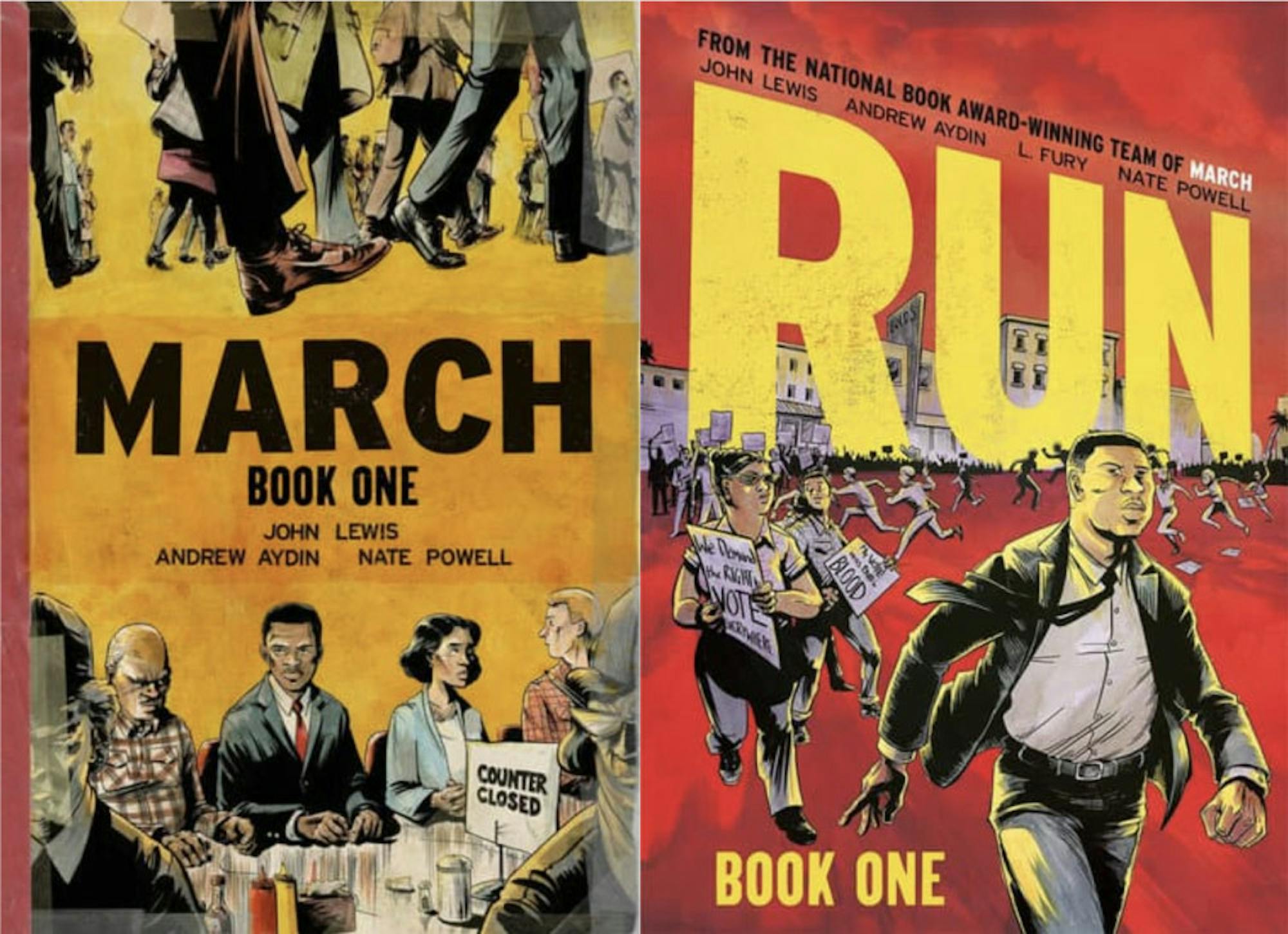Martin Luther King Jr. was a comic book editor. Way back in 1957, Dr. King helped Alfred Hassler and Benton Resnik create a 16-page comic titled "Martin Luther King and the Montgomery Story" (1957). This small, independent comic was hugely influential in the Civil Rights Movement, even reaching eventual Congressman and civil rights legend John Lewis. As the decades moved on and the fight for equality continued, Lewislooked for a way to preserve the inspirational feeling he got from those 16 pages for future generations. Andrew Aydin and Nate Powell, who both spoke at the Boston Book Festival this year, helped the late congressman make that dream a reality with the graphic novels "March" (2013–16): Books 1–3 and "Run": Book 1, which were written in the very medium that inspired him.
Aydin, who I had the opportunity to interview before the Book Festival’s panel, found a love of comic-book storytelling at a young age.Growing up in Georgia as the son of a politically active mother and a Turkish immigrant father, he turned to comics as a pastime.He soon found stories like "Marvels" (1994) by Kurt Busiek and Alex Ross that “were just mind blowing to me. I mean, they're so beautiful. So well written, it was a different kind of superhero story … a human grounded story. And that put the seed in my mind about the potential for comics beyond what we thought of as the traditional superhero story.”
He continued reading more independent books like Alex Robinson’s "Box Office Poison" (1996–2000) and picking up comics left for him by "Flaming Carrot" (1979–2006) writer Bob Burden at his local barbershop. Despite all the fun he had, he “never thought comics [were] a way I could make a living as reliably, as honestly my mother would have preferred.” To make ends meet and pursue a different yet equal passion, Aydin moved into government work.
He worked at various government jobs until eventually landing a gig as an aide to his district’s congressman, John Lewis. Lewis soon recognized Aydin’s skill as a writer and began to let him write tweets, speeches and mail for him. It was a skill Lewis needed more than ever, as, according to Aydin, “The John Lewis that we celebrate today is not the John Lewis that I knew in 2008, who was struggling in his primary campaign.”
However, Lewis also had a profound effect on Aydin. Later, when Aydin told his fellow aides he would be going to Atlanta’s Dragon Con to celebrate the successful campaign's end and was promptly laughed at,Lewis stood up for him and told his aides about "Martin Luther King and the Montgomery Story".Aydin was shocked by the ties between comics and the civil rights movement and decided to learn more. He researched the story while working for Lewis and completing his masters at Georgetown University. He then began to propose making a similar story about Lewis, or as Aydin says the Congressman would call it, his “chicken story.”The congressman brushed it off for some time, but eventually gave in with one requirement –– Aydin would have to write it with him.
The story that would become "March: Book One" (2013) took Lewis and Aydin two years to write. But for the comic to be a comic, the pair would need a publisher and an artist. Enter Top Shelf Productions and artist Nate Powell. Top Shelf quickly agreed to publish the pair’s book, and then started calling for artists to send in pitches for the story. Powell thought the story sounded like a great idea and was already familiar with the history and setting because he had also grown up in the Deep South.After some encouragement, he sent in a pitch. Lewis almost immediately chose Powell’s art, and the rest is history.
John Lewis kept working on "Run: Book One", the sequel to the "March" trilogy and the story of the post-1965 civil rights movement, up through the final months of his life. According to Aydin, “He would joke that he couldn't wait to go to Comic Con one more time with this book, knowing that he wouldn't make it.”Amidst the loss of the congressman and the George Floyd protests, Aydin and Powell knew the fight would continue, in part through work they had done with John Lewis.Aydin says one particular tweet,which he often described as a modern equivalent to comics that he wrote with the congressman, keeps him going and inspired "Run" as a comic, and as a story: “Do not become lost in a sea of despair. Be hopeful, optimistic. Together, we will get there.”






